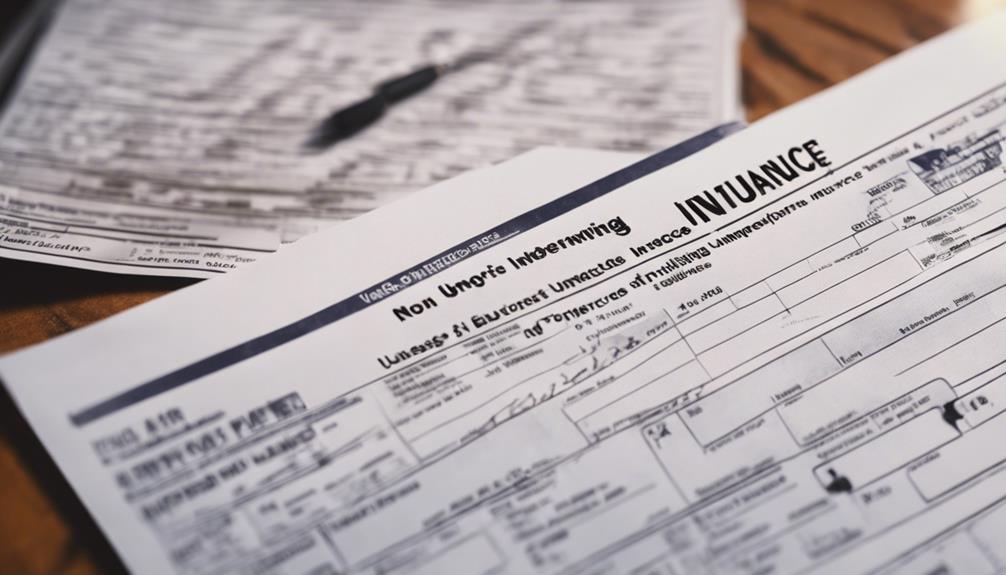If you're a non-resident business owner in Illinois, you might be thinking that tax considerations could be daunting, but understanding the specific rules and requirements can help you navigate this complex landscape with confidence.
Knowing how your residency status is determined and the implications it has on your tax obligations is crucial. However, beyond just residency, there are other key factors that can significantly impact how you manage your business taxes in Illinois.
Stay tuned to discover essential insights that will help you make informed decisions and ensure compliance with Illinois tax laws.
Key Takeaways
- Non-resident business owners in Illinois face challenges with state tax credits and deductions.
- Understanding Illinois tax options helps optimize tax strategies for non-resident owners.
- Compliance with Illinois tax regulations is crucial to avoid penalties as a non-resident business owner.
- Professional CPA services can maximize deductions and assist non-resident business owners in Illinois.
Illinois Tax Landscape Overview
Navigating the tax landscape in Illinois requires a comprehensive understanding of the state's corporate income tax rates, personal property replacement tax, and the Pass-Through Entity (PTE) tax options for non-resident business owners.
Illinois imposes a 7% corporate income tax rate on businesses operating within its borders. Additionally, most businesses in Illinois are subject to a personal property replacement tax.
For pass-through entities such as S corporations and partnerships, there's the choice to pay a 4.95% PTE tax on net income. Non-resident owners of businesses in Illinois may encounter challenges concerning state tax credits and deductions.
To effectively manage tax obligations, it's crucial for non-resident business owners to grasp the intricacies of the Illinois tax landscape. Understanding the nuances of business income tax, pass-through entities, and the various tax options available will aid in optimizing tax strategies and ensuring compliance with Illinois tax laws.
Business Tax Rates in Illinois

When considering business operations in Illinois, it's essential to understand the distinct tax rates that apply to different types of entities. For C corporations, the corporate income tax rate in Illinois stands at 7%.
Pass-through entities (PTEs) such as partnerships and S corporations have the option to choose a 4.95% PTE tax on their net income.
Additionally, most businesses in Illinois are subject to the personal property replacement tax. It's important for non-resident business owners to grasp these rates to effectively plan their tax obligations in the state.
Furthermore, Illinois imposes an annual franchise tax on corporations conducting business within its borders. To ensure compliance and accurate tax filings, non-resident business owners must stay informed about these Illinois tax rates and requirements, which are overseen by the Illinois Department of Revenue.
Illinois Business Income Tax Details
Understanding the nuances of Illinois business income tax is crucial for non-resident business owners to navigate state tax obligations effectively. In Illinois, businesses face a 7% corporate income tax rate based on federal taxable income. Pass-through entities, such as partnerships and S corporations, have the option to pay a 4.95% Pass-Through Entity (PTE) tax on net income. The PTE tax allows these entities to circumvent the $10,000 federal taxable income cap for state tax deductions and is applicable until 2025.
Navigating the intricacies of Illinois business income tax fosters compliance and peace of mind for non-resident business owners.
Understanding the implications of the corporate income tax rate and PTE tax on operations is key for effective tax planning.
Ensuring proper compliance with state tax obligations is essential to avoid penalties and maintain a good standing in Illinois.
Illinois Sales and Use Tax Explained

To effectively manage your tax obligations as a non-resident business owner in Illinois, it's essential to grasp the intricacies of the state's sales and use tax system.
Illinois enforces a standard sales tax rate of 6.25% on tangible personal property and certain services. However, certain items qualify for a reduced sales tax rate of 1% in Illinois.
It's important to note that local jurisdictions in Illinois can impose additional sales taxes on top of the state rate. Moreover, sales tax rates in Illinois are subject to biannual changes on January 1 and July 1 each year.
As a non-resident business owner, understanding Illinois sales and use tax regulations is crucial to ensure compliance with state tax laws. Familiarizing yourself with the distinctions between sales tax, which is collected from the end consumer, and use tax, which applies to untaxed items used in Illinois, will help you navigate the complexities of the state's tax requirements effectively.
Understanding Illinois Payroll Taxes

Illinois payroll taxes encompass state income tax withholding, unemployment insurance tax, and state disability insurance tax. Employers are mandated to deduct state income tax from employees' wages according to Illinois withholding tables.
Understanding payroll tax rates and tax withholding requirements is essential to ensure compliance with Illinois state regulations.
Payroll Tax Rates
When calculating payroll for your business in Illinois, be mindful of the state income tax rate of 4.95% for individuals, which applies to non-resident business owners as well. Understanding Illinois payroll tax rates is crucial to ensure compliance with state regulations.
Here are some key points to consider:
- Illinois employers must withhold state income tax ranging from 4.75% to 4.95% from employees' wages.
- Additionally, employers are required to withhold 1.45% for Medicare and 6.2% for Social Security taxes from employees' pay.
- Unemployment insurance tax rates in Illinois vary based on the employer's experience rating and the state's trust fund balance.
Ensuring accuracy in payroll tax deductions is essential for your business's financial health and legal compliance.
Tax Withholding Requirements
Make sure to register with the Illinois Department of Revenue as an employer to comply with tax withholding requirements for your business. As non-resident business owners in Illinois with employees, you're subject to state tax rates on employee wages, which include federal income tax, Illinois state income tax, and FICA taxes.
It's essential to understand and adhere to Illinois payroll tax laws to ensure compliance with state regulations. By withholding taxes from employee wages based on the appropriate rates, you demonstrate your commitment to regulatory compliance.
Failure to meet Illinois tax withholding requirements can lead to penalties and interest on unpaid taxes, emphasizing the importance of staying up to date with your obligations as an employer in the state.
Navigating Illinois Franchise and Replacement Taxes

Navigating the complexities of franchise and replacement taxes in Illinois requires a thorough understanding of the calculation methods and implications for non-resident business owners. The State of Illinois mandates an annual franchise tax on corporations, calculated based on paid-in capital at a rate of $1.50 per $1,000. Additionally, most businesses in Illinois are subject to a personal property replacement tax, which is determined by their net income. Pass-Through Entities (PTEs) such as S corporations and partnerships have the choice to pay a PTE tax on their net income at a fixed rate of 4.95%. It's essential for non-resident business owners to grasp these intricacies to fulfill their tax obligations effectively.
Dealing with these tax intricacies may seem daunting, but clarity can be achieved through expert guidance.
Understanding the calculation methods can help you optimize your tax strategy and minimize liabilities.
Knowing the implications of franchise and replacement taxes ensures compliance and peace of mind.
Illinois Withholding and Unemployment Insurance Taxes

To comply with Illinois tax regulations, non-resident business owners must ensure proper withholding of state income tax from employee wages and payment of Unemployment Insurance taxes based on employee earnings. Illinois state taxes have specific withholding rules based on employee earnings. Employers in Illinois are required to pay Unemployment Insurance taxes to fund benefits for workers who lose their jobs. Non-resident business owners need to adhere to these tax requirements to stay compliant. Below is a table summarizing the key points related to Illinois withholding and Unemployment Insurance taxes:
| Topic | Description |
|---|---|
| Withholding Tax Rates | Based on employee earnings |
| Unemployment Insurance Taxes | Paid by employers to fund benefits for workers who are unemployed |
| Compliance Requirements | Non-resident business owners must comply with Illinois state tax regulations |
| Importance of Compliance | Ensures adherence to state tax laws and avoids penalties |
Tax Considerations for Different Business Entities

When considering tax implications for different business entities in Illinois, it's crucial to understand the distinctions between entity taxation structures.
Entities like S corporations pass income to shareholders and are subject to personal property tax, while LLCs operate as pass-through entities that pay personal property replacement tax.
Partnerships in Illinois also distribute income to partners and have specific tax obligations, as do sole proprietorships, which pay tax on their business income.
Entity Taxation Overview
Different business entities in Illinois, including corporations, S corporations, partnerships, LLCs, and sole proprietorships, each have distinct tax obligations based on their structure and income levels. Understanding these tax considerations is crucial for navigating Illinois tax laws.
Here are some key points to consider:
- Corporations in Illinois are subject to corporate income tax, property replacement tax, and franchise tax.
- S corporations pass income to shareholders, who pay personal property tax on their share.
- LLCs are taxed as pass-through entities and are liable for personal property replacement tax.
Each business entity type has specific tax responsibilities in Illinois, and comprehending these obligations is essential for ensuring compliance and effective tax planning.
Pass-Through Vs. Corporate
Pass-through entities, such as partnerships and S corporations, distribute income to individual owners for tax purposes. These individual owners then report their portion of the entity's income on their personal tax returns.
Unlike corporate entities, pass-through entities aren't subject to corporate income tax at the entity level in Illinois. Corporate entities, on the other hand, are required to pay corporate income tax on their profits at a rate of 7% in Illinois.
One advantage for owners of pass-through entities is that they may have access to tax credits and deductions that aren't available to owners of corporate entities. This can result in potential tax savings for individual owners of pass-through entities when compared to those who own corporate entities.
Importance of Professional CPA Services

For non-resident business owners in Illinois, engaging professional CPA services is crucial for navigating the intricate landscape of state tax laws and regulations. Professional CPAs offer specialized expertise that can significantly benefit non-resident business owners in managing their tax responsibilities effectively.
Here are three reasons why professional CPA services are essential:
- Maximizing Deductions: CPAs can provide guidance on maximizing deductions, ensuring non-resident business owners take full advantage of available tax benefits.
- Ensuring Compliance: Expertise in multi-state taxation allows CPAs to ensure compliance with Illinois tax requirements, reducing the risk of penalties and fines.
- Optimizing Tax Efficiency: CPAs assist in structuring business operations to optimize tax efficiency, helping non-resident owners minimize tax liabilities and enhance overall financial performance.
Resources for Business Tax Assistance

Illinois Department of Revenue provides valuable resources such as tax guides, forms, and FAQs to assist non-resident business owners in navigating state tax obligations effectively. For further assistance, non-resident business owners can attend free workshops and seminars to deepen their understanding of Illinois tax laws and requirements. Online tools like tax calculators and registration portals are also available to aid in managing tax obligations conveniently. Small Business Development Centers in Illinois offer personalized assistance to non-resident business owners seeking guidance on tax-related matters. Additionally, consulting with tax professionals and accountants specializing in Illinois tax laws can provide tailored support for specific tax concerns. Leveraging these resources can help non-resident business owners stay compliant with Illinois tax laws and fulfill their tax obligations efficiently.
| Resource | Description | Availability |
|---|---|---|
| Illinois Department of Revenue | Provides tax guides, forms, and FAQs for non-resident business owners | Online |
| Small Business Development Centers | Offer personalized assistance on tax-related matters | In-person and online |
| Tax Professionals/Accountants | Specialize in Illinois tax laws, offering personalized tax guidance | By appointment |
Frequently Asked Questions
Does Illinois Tax Non Resident Income?
Yes, Illinois taxes non-resident income sourced to the state. To navigate this, consider non-resident deductions, tax treaties, remote work tax implications, withholding requirements, state tax credits, and tax filing deadlines.
International tax planning and non-resident tax advisors can aid in optimizing your tax situation. Stay compliant with Illinois tax laws to avoid penalties and ensure smooth business operations in the state.
What Are the Taxes for Business Owners in Illinois?
When you're a business owner in Illinois, you'll need to navigate a landscape of corporate income tax, sales and use tax, employment taxes, property taxes, and franchise tax.
The corporate income tax rate stands at 7.99%, varying by business structure and earnings. Pass-through entities may opt for a 4.95% PTE tax on net income.
Understanding nexus is key for multistate owners to determine tax obligations based on presence or activity.
How Is an LLC Taxed in Illinois?
When owning an LLC in Illinois, your tax obligations are intertwined with your personal income tax returns. The LLC's profits and losses flow through to you, the owner, impacting your share of state income tax.
Fortunately, Illinois doesn't levy separate state taxes on LLCs. By understanding these tax implications, non-resident business owners can navigate their obligations effectively, ensuring compliance with state regulations and potentially optimizing tax strategies.
Do I Have to Pay Illinois Taxes if I Work in Another State?
If you work remotely for an Illinois-based business from another state, you might have tax implications due to multi-state taxation. Filing requirements could vary based on your residency status and income sourced from Illinois.
Deductions and tax credits could help offset your tax liability, but compliance issues might arise. Understanding these factors is essential to ensure you meet Illinois tax obligations while working remotely from another state.
Conclusion
As a non-resident business owner in Illinois, you must carefully navigate the complex tax landscape to ensure compliance and minimize potential liabilities.
By understanding the various tax considerations, seeking professional CPA services, and staying informed about recent tax law changes, you can confidently manage your tax responsibilities.
Remember, attention to detail and proactive planning are key to avoiding any unexpected tax surprises and maintaining the financial health of your business in Illinois.